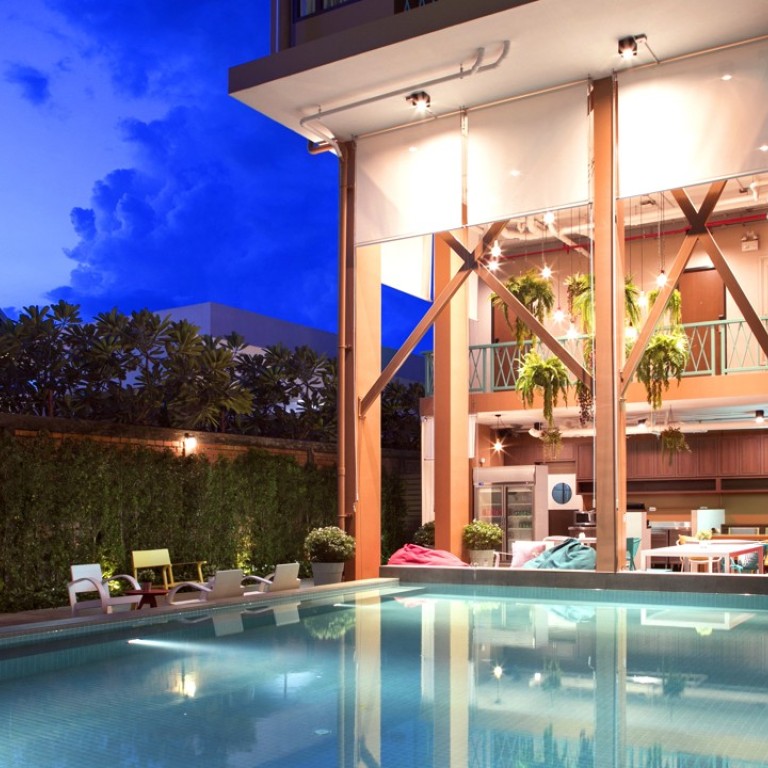
Asia’s luxury hostels for the ‘flashpacker’ generation are classy but cheap
The baby boomer generation has spawned a new breed of traveller who demands deluxe dorms and hotel-like facilities. We take a look at how the ‘poshtel’ movement is taking off in budget traveller magnet Southeast Asia
It’s hard to believe that the art deco-style building housing a selection of spacious, bright dorms and rooms, each with a clean minimalist design, is a hostel. The big outdoor pool, in-house bar and trendy vibe are a stark contrast to your regular hostel, where bunk beds are stacked unimaginatively in dank rooms and the thought of a trip to the toilet sends shivers down one’s spine.
Angkor boutique hotel – luxury with a conscience
This is a poshtel (“posh hostel”), Thai-based hostel brand Lub d’s latest offering, which opened in Siem Reap, Cambodia, in September. It offers 120 beds (from US$9 a night) arranged in mixed or ladies-only dorms, each with 10 beds and individually designed with a somewhat futuristic feel: clean lines, uncluttered, bright spaces and block colours. There are also 72 private rooms (from US$29 a night) with en suite bathrooms, a pool with a bar, co-working space, a games area, laundry room and restaurant.
The hip hostel caters to growing demand in Southeast Asia for higher-quality budget accommodation.
“It’s all about offering hotel standards with the laid-back, friendly vibe – and cost – of a hostel,” says Lub d’s marketing director, Yossawon Puangchanpetch.
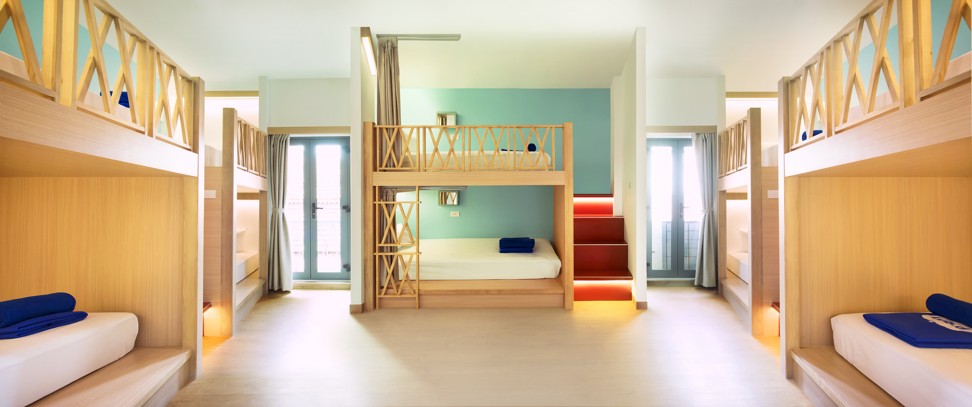
Carolyn Childs, co-founder of My Travel Research, says such accommodation caters to a new breed of traveller – the “flashpacker” – an evolution of the backpacker the baby boomer generation gave birth to.
Travelling with their smartphones, they want to discover, post unique experiences and unordinary things
“While many have moved on, there are many that remain attracted to the idea of being a backpacker, but these days they are ‘flashpackers’; they enjoy the values of hostels, but with a little more money are prepared to pay extra,” she says.
According to a study released this month by hospitality and property consultancy C9 Hotelworks, demand for hostels in Southeast Asia is skyrocketing. In 2017, the number of beds offered by 1,766 hostels in the region rose by 32 per cent, to 63,632. Thailand leads the pack, with 41 per cent of the beds.
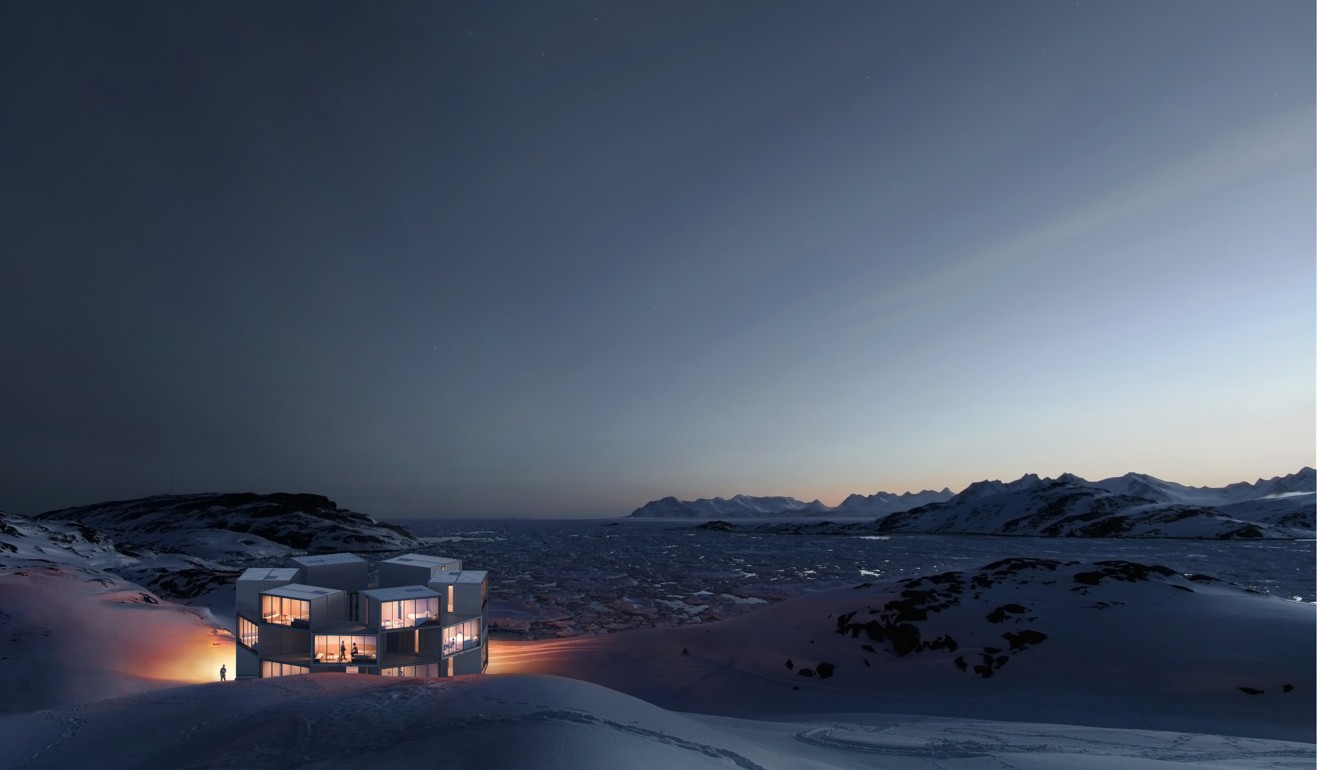
The report noted a shift in demand from all-dorm accommodation to higher-quality hostels offering private rooms. In Indonesia, Thailand and Vietnam, more than 50 per cent of hostels now offer this option.
Bill Barnett, managing director of C9 Hotelworks, says tourists are opting for hostels over budget hotels because of the experiential value they offer.
A further factor may be the growth of the 1990s generation of Chinese travellers and of Asian young travellers generally
“Travellers’ values are changing towards more social elements and wanting to get local,” he says. “In days past, people escaped to hotels. Now, travelling with their smartphones, they want to discover, post unique experiences and unordinary things. So you have travellers who could afford to stay in a hotel but want the experience of the hostel.”
Southeast Asia has plenty of untapped potential for poshtels, with set-up costs lower than in other regions, rents cheaper, a growing number of budget airlines and a history of attracting large numbers of budget travellers.
Adventure travel for retirees: Hong Kong agencies tailor trips for silver-haired globetrotters as their numbers rise
“Southeast Asia has always been a popular destination for value-conscious travellers,” says Childs. “A further factor may be the growth of the 1990s generation of Chinese travellers and of Asian young travellers generally.”
Thailand-based Lub d shook up the country’s budget accommodation scene when it launched its first hostel a decade ago in Silom, Bangkok. Since then Lub d – the region’s fastest growing hostel group – has opened four more hostels in Thailand, Cambodia and the Philippines. And it has its sights set on opening hostels in the Thai islands, Penang in Malaysia and the Japanese capital, Tokyo, by 2019.
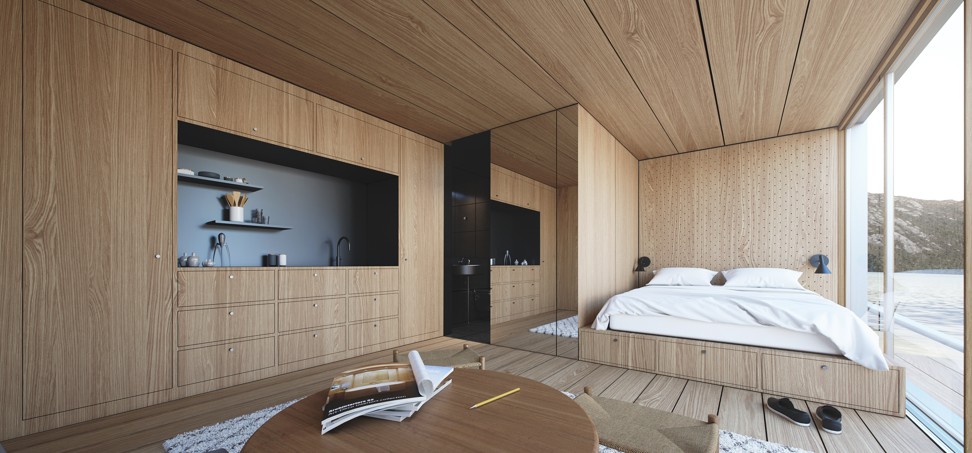
Mark Albert Paragas, 30, from the Philippines, who stayed at Lub d Siam in Bangkok for the seventh time in October, says it feels like a home away from home. “I always love to stay there, not only because of the location and cheap accommodation but because of the people and excitement every time,” he says.
Other brands tapping into the trend include 5Footway Inn, which has five chic hostels offering 730 beds in prime locations across Singapore. Offering all of the mod cons in a modern and cosy setting, 5Footway Inn has become a leader among Singapore’s 92 hostels.
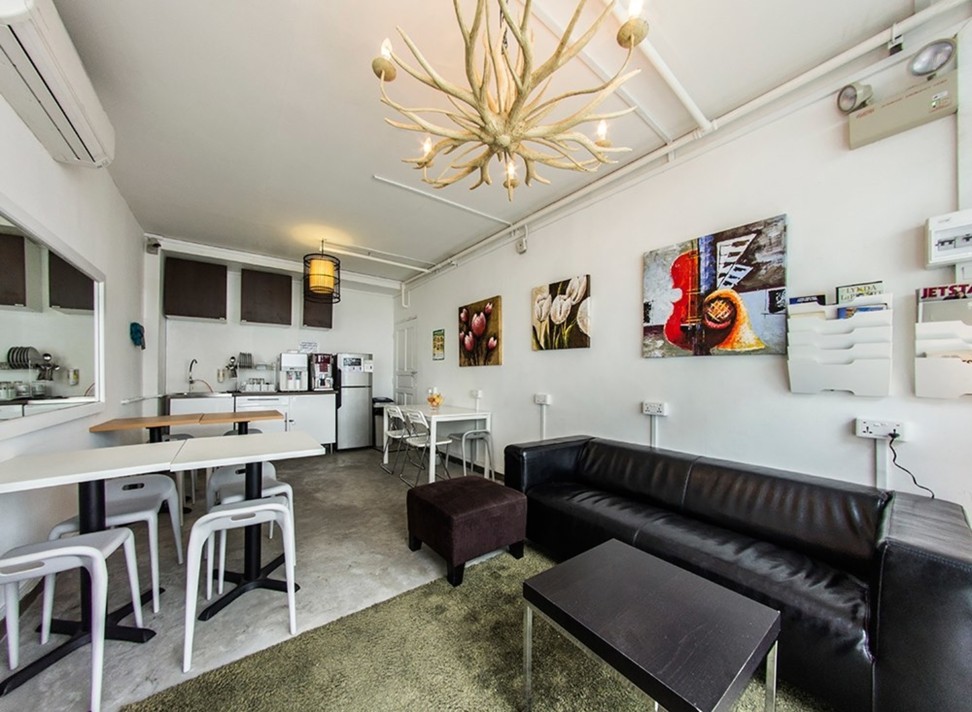
Ostello Bello, which championed the boutique hostel movement in Italy, also saw the region’s potential, expanding into Myanmar in 2014. It now has hostels in Bagan, Mandalay and Inle Lake, with a second opening in Bagan this month.
Co-founder Enrico Cesenni says opportunities are being explored in other up-and-coming destinations in the country, including Hpa-An and Hsipaw.
Danish start-up Poshtel plans on pushing the poshtel concept into new realms, having recently launched Poshtel Popup, its first project, which opened in Nordhavn, Denmark, in October.
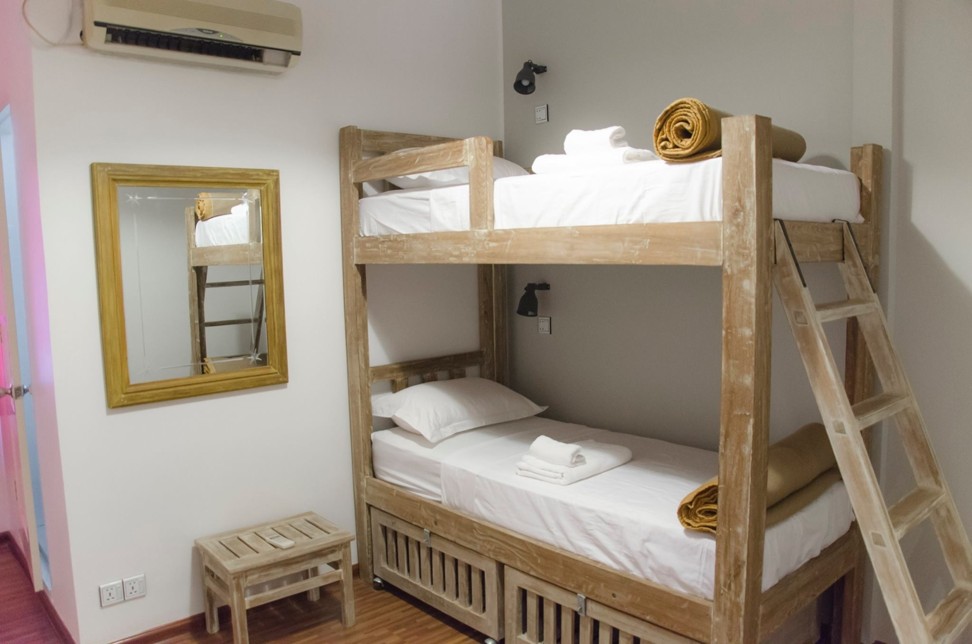
Co-founder Søren Kjær Henningsen says Poshtel offers an environmentally-friendly and quirky alternative to traditional accommodation by converting shipping containers into luxury hostels. These can then be transported to any spot in the world.
In Asia, the company is working on a 50-unit complex in Thailand, with franchise deals being hammered out in Singapore, Malaysia, Indonesia, South Korea and Japan.
Seven of the best backpacks for hiking in Hong Kong this winter
Barnett says: “The poshtel trend is just the tip of the iceberg for a larger change.”
And Poshtel’s creative director, Kristoffer Blom, adds: “We see ourselves as part of a greater movement – a movement which is, for the first time really, challenging the hotel industry and the dominant logic around it.
“There is a growing trend for seeking the truly unique; to go places your neighbour for sure hasn’t visited last summer.”

